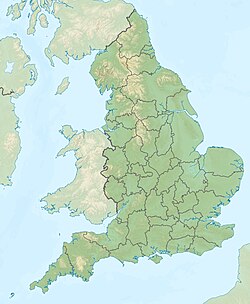Our website is made possible by displaying online advertisements to our visitors.
Please consider supporting us by disabling your ad blocker.
Exeter
Exeter | |
|---|---|
Clockwise from top: Exeter Cathedral; Southernhay; Sidwell Street in the city centre; Exeter Quay; Royal Albert Memorial Museum; The Iron Bridge | |
| Motto: Semper fidelis (Always faithful) | |
 | |
| Coordinates: 50°43′32″N 03°31′37″W / 50.72556°N 3.52694°W | |
| Sovereign state | United Kingdom |
| Country | England |
| Region | South West England |
| Ceremonial and shire county | Devon |
| City status | Time immemorial |
| Non-metropolitan district | 1974 |
| Government | |
| • Type | City council |
| • Body | Exeter City Council |
| • MP | Steve Race (Labour) & David Reed (Conservative) |
| Area | |
• Total | 18 sq mi (47 km2) |
| • Rank | 246th (of 296) |
| Population (2022)[2] | |
• Total | 134,939 |
| • Rank | 175th (of 296) |
| • Density | 7,400/sq mi (2,900/km2) |
| • Demonyms | Exonian |
| • Ethnicity (2011)[3] | 93.05% White |
| Time zone | UTC0 (GMT) |
| • Summer (DST) | UTC+1 (BST) |
| Postcode district | |
| Area code | 01392 |
| Website | exeter |
Exeter (/ˈɛksɪtər/ ⓘ EK-sit-ər) is a cathedral city and the county town of Devon, South West England. It is situated on the River Exe, approximately 36 mi (58 km) northeast of Plymouth and 65 mi (105 km) southwest of Bristol.
In Roman Britain, Exeter was established as the base of Legio II Augusta under the personal command of Vespasian. Exeter became a religious centre in the Middle Ages. Exeter Cathedral, founded in the mid 11th century, became Anglican in the 16th-century English Reformation. Exeter became an affluent centre for the wool trade, although by the First World War the city was in decline. After the Second World War, much of the city centre was rebuilt and is now a centre for education, business and tourism in Devon and Cornwall. It is home to two of the constituent campuses of the University of Exeter: Streatham and St Luke's.
The administrative area of Exeter has the status of a non-metropolitan district under the administration of the County Council. It is the county town of Devon and home to the headquarters of Devon County Council. A plan to grant the city unitary authority status was scrapped by the 2010 coalition government.[4]
- ^ "Mid-Year Population Estimates, UK, June 2022". Office for National Statistics. 26 March 2024. Retrieved 3 May 2024.
- ^ "Mid-Year Population Estimates, UK, June 2022". Office for National Statistics. 26 March 2024. Retrieved 3 May 2024.
- ^ "Ethnic Group, 2011". Office for National Statistics. 30 January 2013. Archived from the original on 29 June 2014. Retrieved 18 July 2013.
- ^ "Pickles stops unitary councils in Exeter, Norwich and Suffolk". GOV.UK. 26 May 2010. Retrieved 21 December 2024.
Previous Page Next Page












